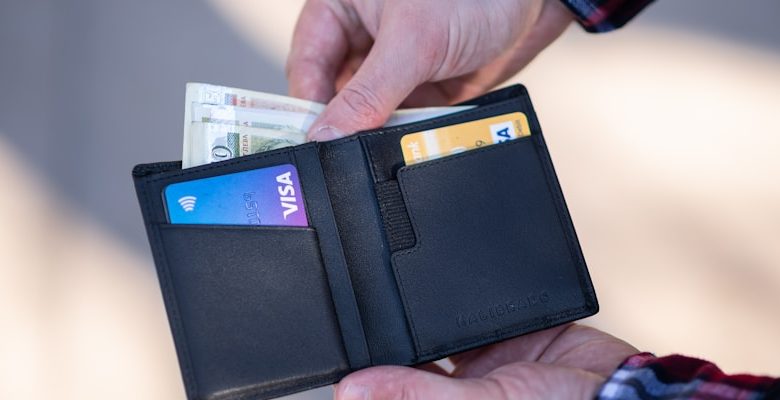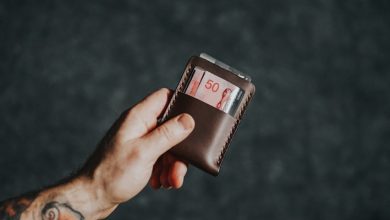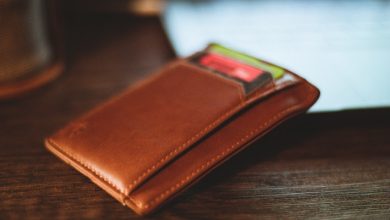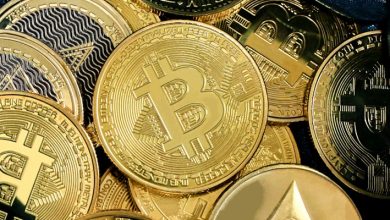The Role of Wallets in NFT Transactions

- Understanding the importance of wallets in NFT transactions
- How wallets facilitate the buying and selling of NFTs
- Securing your NFT investments with the right wallet
- Exploring the various types of wallets available for NFT transactions
- Tips for choosing the best wallet for your NFT collection
- The future of wallets in the ever-evolving world of NFTs
Understanding the importance of wallets in NFT transactions
Wallets play a crucial role in the world of NFT transactions. They serve as a secure digital storage for holding NFTs, which are unique digital assets that are stored on the blockchain. Without a wallet, it would be impossible to buy, sell, or trade NFTs. Therefore, understanding the importance of wallets in NFT transactions is essential for anyone looking to participate in this growing market.
When it comes to NFT transactions, wallets act as the intermediary between the user and the blockchain. They provide a secure way for users to store their NFTs and facilitate transactions by interacting with the blockchain. Without a wallet, users would have no way to access their NFTs or transfer them to other users. This highlights the critical role that wallets play in the NFT ecosystem.
Furthermore, wallets offer a level of security that is crucial when dealing with valuable digital assets like NFTs. By utilizing encryption and private keys, wallets ensure that only the rightful owner has access to their NFTs. This protection is essential in preventing theft and unauthorized access to NFTs, making wallets a vital component of secure NFT transactions.
How wallets facilitate the buying and selling of NFTs
Wallets play a crucial role in facilitating the buying and selling of NFTs. When it comes to NFT transactions, wallets serve as the digital storage for the tokens, allowing users to securely store, send, and receive their NFTs.
One way in which wallets facilitate NFT transactions is by providing users with a secure way to store their NFTs. By using a wallet, users can keep their NFTs safe from potential hacks and theft, ensuring that their digital assets are protected at all times.
Additionally, wallets make it easy for users to buy and sell NFTs on various marketplaces. Users can connect their wallets to NFT marketplaces, allowing them to seamlessly transfer their tokens and participate in the buying and selling of digital assets.
Moreover, wallets enable users to track their NFT transactions and view their digital asset portfolio in one centralized location. This makes it convenient for users to monitor their NFT holdings and stay informed about the status of their transactions.
Overall, wallets play a vital role in the NFT ecosystem by providing users with a secure and convenient way to store, buy, and sell their digital assets. As the popularity of NFTs continues to grow, wallets will remain essential tools for users looking to participate in the world of digital collectibles.
Securing your NFT investments with the right wallet
When it comes to securing your non-fungible token (NFT) investments, choosing the right wallet is crucial. NFT transactions involve valuable digital assets that need to be protected from potential threats such as hacking or theft. By selecting a secure and reliable wallet, you can ensure that your NFTs are safe and sound.
There are different types of wallets available for storing NFTs, including hot wallets and cold wallets. Hot wallets are connected to the internet, making them convenient for frequent trading but also more vulnerable to cyber attacks. On the other hand, cold wallets are offline devices that provide an extra layer of security by keeping your NFTs disconnected from the internet when not in use.
When choosing a wallet for your NFT investments, consider factors such as security features, user-friendliness, and compatibility with the NFT marketplace where you plan to buy or sell your digital assets. Look for wallets that offer features like two-factor authentication, encryption, and multi-signature support to enhance the security of your NFT holdings.
It’s also essential to keep your wallet information confidential and secure. Avoid sharing your private keys or seed phrases with anyone and be cautious when entering your wallet details on unfamiliar websites or platforms. By taking these precautions, you can minimize the risk of unauthorized access to your NFT wallet and protect your valuable digital assets from potential threats.
Exploring the various types of wallets available for NFT transactions
When it comes to NFT transactions, having the right wallet is crucial. There are various types of wallets available to choose from, each with its own unique features and benefits. Let’s explore some of the most popular options:
1. **Hot Wallets**: These are online wallets that are connected to the internet, making them convenient for quick transactions. However, they are also more vulnerable to hacking and security breaches.
2. **Cold Wallets**: In contrast, cold wallets are offline wallets that offer enhanced security since they are not connected to the internet. They are ideal for storing large amounts of NFTs long-term.
3. **Desktop Wallets**: These wallets are downloaded and installed on a desktop computer, providing users with control over their private keys. They are a good option for those who prioritize security and control.
4. **Mobile Wallets**: Mobile wallets are apps that can be downloaded onto a smartphone, allowing users to manage their NFTs on the go. They are convenient but may not offer the same level of security as other types of wallets.
5. **Hardware Wallets**: These are physical devices that store private keys offline, providing the highest level of security for NFT transactions. They are often considered the most secure option for storing valuable NFTs.
By understanding the various types of wallets available for NFT transactions, users can choose the option that best fits their needs and preferences. It is essential to prioritize security and convenience when selecting a wallet to ensure that NFTs are kept safe and easily accessible for future transactions.
Tips for choosing the best wallet for your NFT collection
When it comes to choosing the best wallet for your NFT collection, there are a few key factors to consider. First and foremost, you’ll want to make sure that the wallet you choose is compatible with the specific type of NFTs you plan to buy and sell. Different wallets support different types of NFTs, so it’s important to do your research and find one that meets your needs.
Another important consideration when choosing a wallet for your NFT collection is security. You’ll want to make sure that the wallet you choose has strong security features in place to protect your valuable assets. Look for wallets that offer features like two-factor authentication and encryption to keep your NFTs safe from hackers and other threats.
Additionally, you’ll want to consider the user interface of the wallet you choose. A user-friendly interface can make it easier to manage your NFT collection and conduct transactions. Look for a wallet that is easy to navigate and offers clear instructions for buying, selling, and transferring NFTs.
Finally, consider the cost of using the wallet. Some wallets charge fees for transactions, storage, or other services. Make sure you understand the fee structure of any wallet you’re considering and choose one that offers a good balance of features and affordability.
By taking the time to carefully consider these factors, you can choose the best wallet for your NFT collection and ensure that your assets are safe and secure.
The future of wallets in the ever-evolving world of NFTs
With the rise of NFTs in the digital world, the role of wallets is becoming increasingly important. NFTs are unique digital assets that are stored in wallets, making them a crucial part of the transaction process. As the world of NFTs continues to evolve, so too must wallets in order to keep up with the changing landscape.
One of the key aspects of the future of wallets in the world of NFTs is security. As NFTs become more valuable and sought after, the need for secure wallets to store them becomes paramount. Developers are constantly working to improve the security features of wallets to protect against hacking and theft. This will be crucial in ensuring that users can safely store and trade their NFTs without fear of losing them.
Another important aspect of the future of wallets in the world of NFTs is interoperability. As the NFT ecosystem grows, it is becoming increasingly important for wallets to be able to interact with a wide range of platforms and marketplaces. This will allow users to easily buy, sell, and trade their NFTs across different platforms without any hassle. Developers are working to create wallets that are compatible with multiple platforms, making it easier for users to manage their NFT collections.
In addition to security and interoperability, the future of wallets in the world of NFTs will also be shaped by advancements in technology. As blockchain technology continues to evolve, wallets will become more advanced and user-friendly. Developers are working on creating wallets that offer a seamless user experience, making it easy for both experienced and novice users to navigate the world of NFTs.
Overall, the future of wallets in the ever-evolving world of NFTs looks promising. With a focus on security, interoperability, and technological advancements, wallets will continue to play a vital role in the NFT ecosystem. As the world of NFTs continues to grow and evolve, wallets will need to adapt in order to meet the changing needs of users. By staying ahead of the curve and embracing new technologies, wallets will remain an essential tool for anyone looking to participate in the world of NFT transactions.



